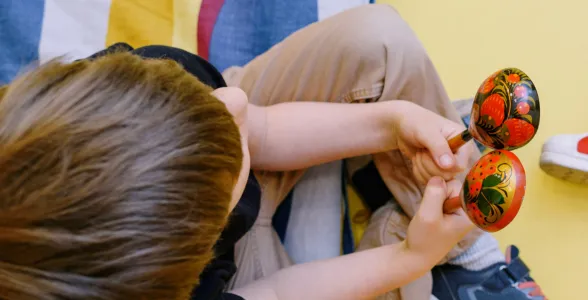
Identity disclosure in therapeutic relationships
Traditionally, therapeutic approaches have centred on the therapist acting like a mirror or wallpaper, i.e. putting as little as possible of their own identity, personality or beliefs into the therapeutic space so that the client can bring themselves to therapy in their truest and most authentic way without distortion from the presence of the therapist. This is also meant to ensure that the needs of the client come first, and in some cases, it is also felt that this boundary is important to maintain the safety of the therapist so that they are not putting themselves in a vulnerable position.
Of course, this approach may be essential for some clients and settings, and less helpful in others where it may feel too cold or when it is holding back the therapeutic relationship. Some people need to feel like they are talking to a human or someone with life experiences that they can relate to in some way. This need for connection can be of real value for people with marginalised identities in particular, where the burden of having to explain what it is like to be marginalised can be immediately lifted just by knowing that the person you are talking to has been through it themselves.
We hear from two of our Music Therapists, Laura and Alice, who share their thoughts.
Laura Al-Bandar (she/her), Music Therapist and Inclusion Lead
Pride month has got me thinking about whether it would be helpful for Music Therapists to be more visible about their own identities. What would happen if more of us from the LGBTQIA+ community made our identities known to our current and potential clients? We might find that people would be more inclined to open up about their experiences and be supported on that journey to be more self-empowered. We might find that we act as role models, just by being visible would be leading by example, and making ourselves known as proud members of the LGBTQIA+ community might help others. We might find that straight clients benefit from being opened up to our diverse perspectives.
Of course, this may not be appropriate for many people. It might just not be relevant or it could divert the focus of the therapy into an unhelpful space for some clients. Some therapists may be at different parts of their own journey of coming out, or may not feel comfortable being open about this in different settings due to the risks that LGBTQIA+ people statistically face on a daily basis. This highlights just how much there is yet to be done in working towards the equity of this group.
I have only a few experiences to draw upon, as a therapist, supervisor and as a client, where the therapist’s sexuality was explicitly stated. However, in all cases, this was deemed as essential to the success of the therapy, even if it wasn’t the main focus of the content explored. Sexuality is inherent to human life and music can offer an alternative medium to express and explore this part of ourselves. If we want this offer to be more available to people then we might have to start making steps towards visibility.
Alice Nicholls (they/she), Music Therapist and Training Coordinator
I’m writing this from the point of view of being both a therapist and a client of therapy, and as a bisexual, queer and non-binary human. I don’t flaunt my identity but I don’t see any reason to hide it from my clients either, especially my gender, and I have experienced that when I disclose my identity to clients who are openly gender-non-conforming it helps us to bond in the therapy.
A shared experience or identity builds a strong therapeutic bond. While self-disclosure as therapists is to be done with caution, in some cases it can be useful. A lot of LGBTQ+ people I know, both clients and friends, say they would actively seek out a therapist who either identifies as queer themselves or is pro-actively queer-friendly and practises therapy as an active ally. I’m a non-binary and queer person and have received a lot of therapy over the years, and I would always choose a queer (or outspoken queer-friendly) therapist for myself as I would feel safer. People refer themselves to therapy for a number of reasons, and sexuality and gender may have nothing to do with those reasons; but for me, it’s a huge part of my identity, and knowing that my therapist would understand some of my experiences helped from the start. It meant I wouldn’t have to keep explaining my identity or relive the trauma. There’s also often an assumption in therapy that everyone is straight and/or cisgender, and it can be a relief to know that this assumption is not being made about you, whether you’re the therapist or client.
I’ve also worked as a Music Therapist with a lot of transgender, non-binary, and gender-non-conforming clients, some of whom have previous therapists who were cisgender. I have heard from some of them that it put them more at ease to know that their therapist was non-binary and would have a level of understanding that a cisgender therapist would not. I think it helps to have some common ground when we are working with people from marginalised backgrounds and identities – not always possible, of course, and perhaps not always needed, but it helps both us and the clients if we can. A lot of the non-binary clients I’ve worked with would not automatically trust a cisgender or heterosexual therapist, and I can understand why: I’ve had a lot of harassment and abuse thrown my way over the years for being who I am, and trusting someone is hard when they share a facet of identity with your harassers. Trust has to be earned, especially in a therapeutic relationship where there is an inherent power dynamic at play.
Identifying in the same way, for both client and therapist, can be a powerful experience in therapy. Obviously, as therapists, we have to have boundaries with our clients, but sometimes widening the gates a little is useful, and more understanding on both sides of the relationship is always welcome. I think, regardless of our identities, we should always strive for that – more understanding, and more connection, across gender, sexuality, and marginalised groups – and if we’re on the inside of those margins, we should listen more to those on the outside.
Support our Work
Help us to provide Music Therapy to the most vulnerable and isolated members of our society
Donate here

.webp)


.png)